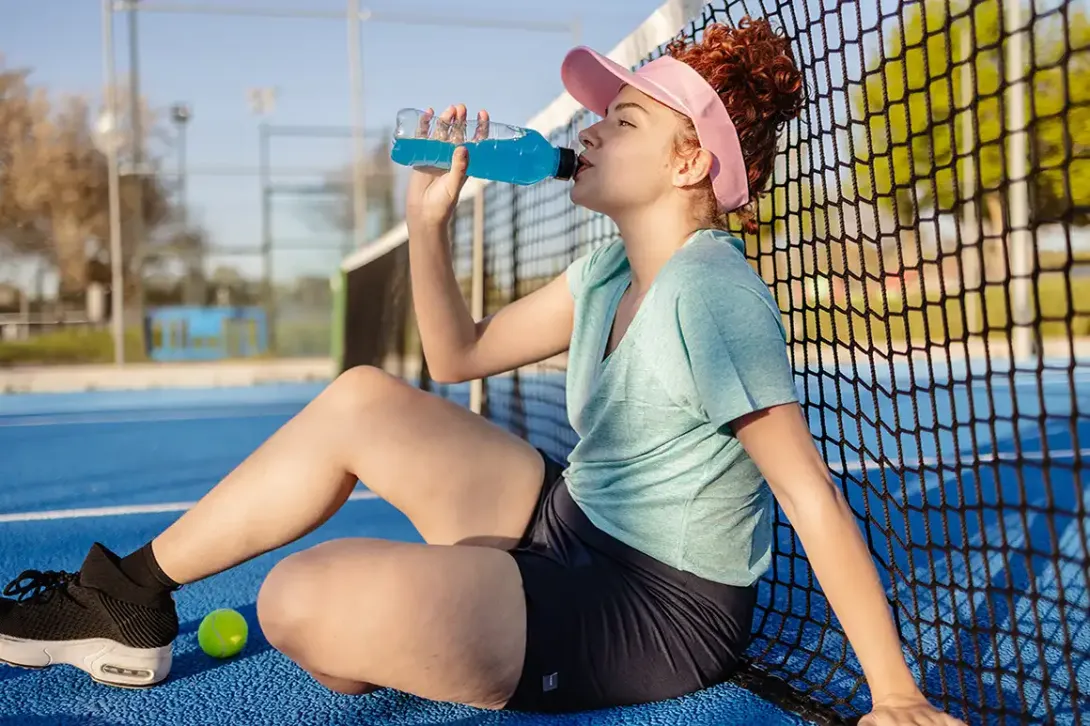
How and when should I use isotonic sports drinks?
Isotonic sports drinks help hydrate and replenish mineral salts after prolonged exercise. Find out in which cases they are useful.
There are many myths about isotonic sports drinks, such as that they can help treat gastroenteritis. Isotonic drinks are designed to support sports performance, not for medical use. According to WHO guidelines, in cases of severe diarrhoea and/or vomiting, oral rehydration solutions (ORS) are required, which involve different minerals.
Isotonic sports drinks: what are they?
Isotonic sports drinks contain a specific concentration of minerals, i.e. an osmolarity, that matches that of blood: 300 mOsm/L. They are also known as sports drinks, as they help to speed up recovery during and after intense physical exercise.
They provide hydration, with about 6-9% of quick-absorption carbohydrates (usually in the form of glucose and fructose) and electrolytes such as sodium, chlorine, potassium and magnesium. Electrolytes are mineral salts, substances that have a regulatory role in the body and help to maintain the balance between the fluids inside and outside of cell walls. Whereas many foods - such as vegetables, salt, dairy products and pulses - provide electrolytes, isotonic drinks are formulated with the optimum concentration to effectively replenish the losses that occur during exercise. Their composition also makes them easy to assimilate.
When to drink isotonic drinks (and when not to)
Now that you know what isotonic drinks are for, let's establish what the right occasions to use them are.
Basically, isotonic sports drinks are used during long endurance exercise sessions, i.e. more than 60 minutes. They become even more important when this exercise is performed in hot and humid environments. Given the loss of mineral salts and water through sweat, a state of hyponatremia could be reached. This is a loss of sodium in the bloodstream which can lead to weakness, muscle pain and a feeling of fatigue. Isotonic sports drinks are taken to replenish that lost sodium, along with other minerals (potassium, magnesium, etc.). They are usually consumed both during and after running. The amount needed will depend on the individual characteristics of each athlete and his or her training, so it is advisable to consult a dietician who specializes in sports nutrition for personalized advice.
However, the use of isotonic drinks is not justified in all types of sports training. In exercises with lower intensity and duration, isotonic drinks are unnecessary as hydrating with water is enough.
Furthermore, it is not advisable to use isotonic drinks as soft drinks, as they are sugar-rich drinks that, outside of a specific sports context, do not provide any health benefits. Moreover, they can be harmful because of their considerable free sugar content, so that excessive consumption can contribute to weight gain and a range of metabolic disorders.
These drinks are particularly undesirable for people with high blood pressure and/or kidney problems such as chronic kidney disease (CKD) or nephrotic syndrome.
In conclusion, Isotonic sports drinks are a useful resource for people undertaking long-distance endurance sports, such as running, cycling or triathlon, especially in hot climates. In other contexts, with lower intensity and duration, water is the best option for rehydration.




